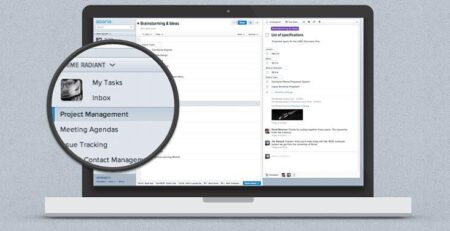Matthew Effect: Key To Facebook News Feed
[vc_row][vc_column width=”1/1″][author][blockquote type=”left” cite=”Gospel of Matthew”]”Whoever has will be given more… Whoever does not have, even what they have will be taken from them.”[/blockquote][feature_headline type=”left” level=”h3″ looks_like=”h3″ icon=”pencil-square-o”]Custom Selected News Feed[/feature_headline][text_output]In his book Outliers Malcolm Gladwell demonstrates a principle he calls the “Matthew Effect”. Essentially, the idea is that when a person gets an early opportunity or a more-lengthy opportunity, it leads to a multiplication of opportunity in the future. And though we can’t fully explain the idea (read the book), we believe the principle is profound and can teach much about best practices in social media.
Much different than Twitter or Instagram, Facebook’s News Feed is made up of posts put out from Facebook’s own algorithm to determine what it says is, “to deliver the right content to the right people at the right time.” Twitter is quite different, for example, and simply posts the most recent tweets to your News Feed in real-time.
The News Feed is created around the user experience. It gives the kind of content it thinks the user will want to see.
How does it do it? It filters the posts a user sees in their News Feed by remembering what that user has viewed and engaged with the most in the past. It’s doing its best to learn the user and produce the kind of content that user tends to enjoy on a regular basis. Summed up, the developers at Facebook are trying to give you more of what you like.
There’s only so much space in the typical user Facebook News Feed since so many people and pages are posting so many things on any given day. Facebook has taken it upon itself to only show you the type of content you are more likely to engage. And, it’s taken upon itself to take away the type of content you are less likely to engage.[/text_output][custom_headline type=”left” level=”h3″ looks_like=”h3″]Rewarding Regulars[/custom_headline][text_output]What this means practically is that if you view one business page more than another, it’s more likely you’ll see the latter more in your News Feed than the former. The more you view a page and its content, the more often you’ll tend to view that page or page’s content in the future. Conversely, the less you view a page, the less likely their content will reach you in your News Feed.
Personally, I like Patagonia clothing, NBA basketball and my favorite local coffee shop. And you’d know it if you logged on to my Facebook account. A lot of my posts are related to those three things. I get posts and content related to them regularly. There are many other pages that I’ve “liked” (clicked the “like” button) in the past, but hardly ever see their posts. Why?[/text_output][custom_headline type=”left” level=”h3″ looks_like=”h3″]Unengaged, Out of the Picture[/custom_headline][text_output]Because Facebook noticed when I saw certain posts in my News Feed and didn’t engage with them by clicking like, comment or share, or by visiting the pages themselves. They took note (algorithm) and made it less likely that I’d see those kinds of posts again. They decreased the potential to reach me when they noticed I wasn’t engaged in the first place.
You may have dozens of organizations, sports teams or retailers which you’ve liked in the past but never see their posts. And, unless you visit their page or engage with them in some way, it will remain the same. It’s the same with Facebook friends. If, for example, after a good period of time (let’s say a year) you never liked or commented on your uncle’s posts, you’re most likely not going to see hardly any of his posts in the future, if none at all.
Facebook does that for you.[/text_output][custom_headline type=”left” level=”h3″ looks_like=”h3″]Decreasing Organic Reach Isn’t What It Seems[/custom_headline][text_output]This is critically important from a brand social media content strategy perspective. Facebook organic reach is down for all business pages on Facebook – the ability to reach current followers in their News Feeds. Yet, those who are still getting your content are much more likely to engage in a meaningful way with that content.
The likelihood is far greater that the fans who are engaged with you are potential customers and want to engage with you in a way that will accomplish your business goals online. This is why as a company it’s important to view your social media as a way of accomplishing your business goals, not just as a way of gaining tons of likes or followers.
So despite reaching a smaller audience, think of the problem as a blessing. You’ll tend to reach those who actually care. That’s great! Social media has done what we’ve all wanted to be done: we see what we like.
Even though reach may be down. It’s likely that those who used to see your content and no longer do were scrolling away and onto the next thing anyway. On the other hand, those who are engaged with you are influencing your reach by their engagement.[/text_output][/vc_column][/vc_row]








Leave a Reply